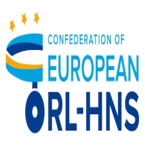Sessions and Tracks
Emerging infectious diseases (EIDs) are a growing global threat that continue to challenge public health systems worldwide. These diseases, often caused by novel pathogens or previously controlled infections, can spread rapidly across borders, leading to significant morbidity, mortality, and social disruption. This session focuses on the global response to EIDs, emphasizing the importance of prevention, early detection, and rapid containment to minimize their impact on health and economies. Zoonotic diseases, in particular, represent a major concern, as pathogens that move from animals to humans can rapidly cause widespread outbreaks. The rise of diseases like Ebola, Zika, and COVID-19, and the challenges they pose for public health authorities.A significant part of the session will focus on the strategies employed by governments, international organizations, and public health bodies to respond to EIDs. Prevention strategies will also be highlighted, with discussions on vector control, health education, and vaccination campaigns.
Malaria remains one of the world’s most significant infectious diseases, particularly in tropical regions where it poses a substantial burden on public health. Despite considerable progress over the past few decades, challenges such as drug resistance, evolving mosquito populations, and limited access to healthcare continue to hinder efforts to eliminate malaria. development of new antimalarial drugs and therapies, with a particular emphasis on overcoming resistance to current treatments like artemisinin-based combination therapies (ACTs). Present findings on emerging drug candidates, as well as the potential of combination therapies and targeted therapies that aim to treat the malaria parasite more effectively and reduce transmission rates.Vaccine development will also be a major focus, with an in-depth discussion on the progress of malaria vaccines such as RTS,S/AS01 and the promising results of newer candidates. Additionally, innovative vector control strategies will be explored, including the use of genetically modified mosquitoes, novel insecticides, and environmental management approaches. These methods aim to reduce the spread of the disease by controlling the mosquito populations responsible for transmission.
Dengue fever, transmitted by the Aedes mosquito, is one of the most prevalent vector-borne diseases worldwide, affecting millions of people each year, particularly in tropical and subtropical regions. Despite significant efforts to control its spread, dengue remains a major public health challenge, exacerbated by factors such as rapid urbanization, climate change, and limited access to healthcare. the expansion of mosquito habitats due to urbanization, and changing weather patterns that influence mosquito breeding.These factors complicate control efforts and contribute to the cyclical nature of dengue outbreaks. Emerging techniques, such as Wolbachia-infected mosquitoes, which limit mosquito reproduction, will be discussed as promising alternatives to conventional methods. Vaccine development is another critical area of focus. While there has been progress with vaccines like Dengvaxia, the safety, efficacy, and implementation of dengue vaccines remain complex. Public health strategies for dengue prevention will also be highlighted, including community engagement, education campaigns, and improving surveillance systems for early detection.
Tuberculosis (TB) remains one of the top infectious disease killers globally, despite significant advancements in prevention and treatment over the past century. However, challenges such as drug-resistant TB, long treatment regimens, and delayed diagnosis continue to hinder efforts to control and eliminate the disease. The development of rapid molecular tests, such as nucleic acid amplification tests (NAATs), which have revolutionized TB diagnosis by providing faster and more accurate results compared to traditional sputum microscopy. Innovations in imaging techniques, including advanced radiographic methods and artificial intelligence (AI)-based interpretation systems, will also be explored as tools to improve diagnosis, particularly in resource-limited settings. New antibiotic candidates, such as bedaquiline and delamanid, will be discussed, along with novel treatment combinations and strategies to shorten the treatment duration for drug-sensitive TB.Additionally,this will address the role of vaccine development in the fight against TB, including progress with candidates such as the M72/AS01E vaccine and other novel vaccine approaches aimed at both prevention and treatment.
Zoonotic diseases, which are transmitted from animals to humans, represent a significant and growing threat to global public health. These diseases are responsible for a substantial number of emerging infectious diseases, such as Ebola, Zika, and COVID-19, and can have devastating impacts on individuals, communities, and entire populations. Deforestation, climate change, and human encroachment into wildlife habitats have increased the frequency and scope of zoonotic spillover events, where diseases jump from animals to humans. Special attention will be given to emerging and re-emerging zoonotic diseases, such as avian influenza, rabies, and SARS, highlighting the public health implications and challenges in controlling their spread.Another key area of focus will be the role of One Health, an integrated approach that recognizes the interconnectedness of human, animal, and environmental health. Experts will discuss how this approach is being applied to improve surveillance, early detection, and response efforts to zoonotic outbreaks. This includes interdisciplinary collaboration among veterinarians, epidemiologists, environmental scientists, and policymakers to develop comprehensive strategies for preventing and managing zoonotic diseases.
Antimicrobial resistance (AMR) is an urgent global health threat that is particularly pronounced in tropical regions, where factors such as limited healthcare infrastructure, high burden of infectious diseases, and inadequate access to essential medicines exacerbate the challenge. The role of self-medication, informal healthcare sectors, and the use of antibiotics in agriculture as significant contributors to the rise of resistance in both human and animal populations. In addition, the session will highlight the impact of tropical diseases, such as malaria, tuberculosis, and bacterial infections, which are often treated with antibiotics, increasing the risk of resistance development. Along with the need for global cooperation to ensure that antimicrobial agents remain effective in treating infectious diseases. By bringing together stakeholders from public health, research, and policy, this session aims to raise awareness of the unique challenges posed by AMR in tropical regions and promote collaborative approaches to prevent the further spread of resistance and safeguard the effectiveness of antimicrobial agents.
Climate change is increasingly recognized as a critical factor influencing the transmission and spread of infectious diseases worldwide. Rising temperatures, changing rainfall patterns, and extreme weather events are altering the geographical distribution of pathogens and their vectors, creating new challenges for public health systems. Complex relationship between climate change and the dynamics of infectious diseases, emphasizing how environmental changes are facilitating the spread of both emerging and re-emerging diseases. Warmer temperatures can expand the habitats of vectors such as mosquitoes and ticks, increasing the risk of diseases like malaria, dengue, Zika, and Lyme disease in regions where they were previously uncommon. Changes in rainfall patterns and humidity also influence the breeding sites of these vectors, contributing to an increased incidence of waterborne diseases like cholera and leptospirosis, especially in areas with inadequate sanitation infrastructure. Highlighting how extreme weather events such as floods, droughts, and storms can disrupt healthcare systems, increase the risk of malnutrition, and lead to the displacement of populations, all of which create conditions conducive to the spread of infectious diseases.
HIV/AIDS continues to be a major public health challenge, especially in tropical regions where socioeconomic, cultural, and healthcare-related factors exacerbate the spread and impact of the disease. These regions often experience high HIV prevalence rates, with complex barriers to prevention, diagnosis, and treatment. the epidemiology of HIV/AIDS in tropical regions, highlighting the countries and communities most affected, as well as the factors contributing to the high burden of the disease. These factors include limited access to healthcare services, stigma, gender inequality, and the intersection of HIV with other infectious diseases such as malaria and tuberculosis. The progress made in HIV prevention, including the use of antiretroviral therapy (ART) to prevent mother-to-child transmission, pre-exposure prophylaxis (PrEP) for high-risk populations, and the scaling-up of HIV testing and counseling services. Efforts to improve adherence to treatment in tropical regions, where factors such as drug resistance, stockouts of medications, and long distances to healthcare facilities can hinder patient outcomes. The role of community-based healthcare programs and mobile health technologies in improving access to HIV care will also be explored, as these initiatives have shown promise in reaching hard-to-access populations.
Leprosy, also known as Hansen's disease, is a chronic infectious disease primarily affecting the skin, peripheral nerves, upper respiratory tract, and eyes. Although it is a treatable disease, leprosy remains a significant health challenge in many parts of the world, particularly in tropical and subtropical regions where social stigma, delayed diagnosis, and limited access to healthcare continue to impede progress toward its eradication. The factors contributing to the persistence of leprosy in these areas, including socio-economic conditions, population mobility, and inadequate healthcare access. Multi-drug therapy (MDT), the standard treatment for leprosy, has been highly successful in reducing transmission and preventing disability. However, challenges remain in ensuring widespread and equitable access to MDT, particularly in rural and remote areas.
Tuberculosis and Co-Infections in the Tropics Tuberculosis (TB) remains one of the most significant public health threats in tropical regions, often exacerbated by the high prevalence of co-infections, particularly with diseases such as HIV, malaria, and hepatitis. The complex interplay between TB and these co-infections presents unique challenges in diagnosis, treatment, and prevention. Burden of TB and its co-infections in tropical regions, focusing on the impact of these concurrent infections on disease progression, treatment outcomes, and public health efforts. epidemiology of tuberculosis in tropical regions, with a focus on countries where the burden of TB is highest. Experts will discuss the role of poverty, overcrowding, and limited access to healthcare in the transmission and persistence of TB in these regions. the growing concern of multi-drug-resistant TB (MDR-TB) and extensively drug-resistant TB (XDR-TB), which are more challenging to treat and are often more prevalent in regions with weak healthcare infrastructure.
Neglected tropical diseases (NTDs) represent a group of infectious diseases that primarily affect populations in tropical and subtropical regions These diseases, including leprosy, schistosomiasis, lymphatic filariasis, river blindness, and soil-transmitted helminthiasis, have historically received less attention compared to other global health priorities, despite their significant burden on public health. NTDs, discussing their epidemiology, impact on affected populations, and the factors contributing to their neglect. Social determinants such as poverty, malnutrition, and lack of sanitation contribute to the persistence and spread of NTDs, and the challenges in diagnosing and treating these diseases in resource-limited settings. ncluding novel compounds and repurposed drugs that show promise in treating multiple NTDs simultaneously. The potential for combination therapies to address drug resistance and improve treatment adherence will be discussed, along with advancements in the development of vaccines for diseases like schistosomiasis and hookworm infections.
Tropical infectious diseases pose significant public health challenges in many low-income countries, where they lead to high morbidity and mortality rates. Diseases such as malaria, dengue, yellow fever, and cholera continue to cause widespread outbreaks, particularly in regions with inadequate healthcare infrastructure. Vaccination has emerged as one of the most effective tools in preventing the spread of these diseases and reducing their burden. Global burden of tropical infectious diseases, focusing on those for which vaccines have been developed or are currently in development. Impact of these diseases on affected populations, particularly in tropical and subtropical regions. Notable examples include the malaria vaccine RTS,S/AS01, which has shown promising results in reducing malaria transmission, and the dengue vaccine Dengvaxia, designed to protect against the four serotypes of the dengue virus. The importance of sustained investment in vaccine development, collaboration between governments and the private sector, and strengthening global immunization efforts will be emphasized as essential components of a long-term strategy to reduce the burden of tropical infectious diseases.
Hepatitis remains a significant global health challenge, particularly in tropical populations where the burden of viral hepatitis, especially hepatitis B and C, is disproportionately high. These infections can lead to severe liver disease, cirrhosis, and liver cancer if left untreated. Despite the availability of effective treatments and vaccines, many tropical regions continue to struggle with hepatitis-related morbidity and mortality due to late diagnosis, limited access to healthcare, and insufficient screening and vaccination programs.Exploring the high prevalence of hepatitis B and C in these areas.lack of vaccination coverage, and the high prevalence of co-infections with other tropical diseases like HIV and malaria. Early diagnosis is crucial for preventing the progression of hepatitis and for initiating antiviral treatment before liver damage becomes irreversible. New antiviral medications, including direct-acting antivirals for hepatitis C, have revolutionized treatment by providing highly effective and well-tolerated therapies that can cure the infection in most patients.Tropical infectious diseases, caused by a variety of viruses, continue to present significant public health challenges, particularly in low-resource settings. In regions where diseases like dengue, Zika, chikungunya, yellow fever, and hepatitis are endemic, antiviral therapies have historically been limited or underdeveloped. However, with ongoing advancements in medical research and technology, there is growing hope that novel antiviral treatments will significantly improve the management and outcomes of these infections.
Tropical infectious diseases, caused by a variety of viruses, continue to present significant public health challenges, particularly in low-resource settings. In regions where diseases like dengue, Zika, chikungunya, yellow fever, and hepatitis are endemic, antiviral therapies have historically been limited or underdeveloped. However, with ongoing advancements in medical research and technology, there is growing hope that novel antiviral treatments will significantly improve the management and outcomes of these infections. The future of antiviral therapy for tropical infections, emphasizing the latest research, emerging therapies, and the challenges and opportunities associated with developing effective treatments for these diseases. The impact of these infections on public health, including their economic burden and the role of co-infections in complicating diagnosis and treatment. Researchers will present the latest developments in drug discovery, including the identification of novel compounds and the repurposing of existing medications to target tropical viruses. Recent breakthroughs in antiviral therapies for diseases like dengue, Zika, and chikungunya will be discussed, with a focus on the progress made in developing drugs that can inhibit viral replication, prevent disease progression, and reduce the severity of symptoms. Vaccines for diseases like yellow fever and hepatitis B have had a significant impact on reducing the burden of these diseases.
The "One Health" approach recognizes the interconnectedness of human, animal, and environmental health and emphasizes the need for integrated solutions to address health threats that cross these domains. This approach has gained significant attention in recent years, particularly in the context of tropical infectious diseases, many of which are zoonotic in nature, meaning they are transmitted between animals and humans. Diseases like zoonotic influenza, Ebola, rabies, and the emerging threat of diseases like Zika and Nipah virus exemplify the critical need for a One Health strategy in managing tropical infectious diseases. One Health approach can be applied to prevent, detect, and respond to infectious disease threats in tropical regions, where the interplay between human, animal, and environmental factors is particularly complex. providing an overview of how it integrates the efforts of multiple disciplines—veterinary medicine, human medicine, environmental science, and public health—to address diseases that affect humans, animals, and ecosystems. Experts will discuss the growing recognition that the spread of tropical infectious diseases is often driven by changes in ecosystems, wildlife habitats, agricultural practices, and human-animal interactions. human, animal, and environmental health indicators to detect potential outbreaks of tropical infectious diseases. By combining data from different sectors, these systems can provide early warning signals and enable coordinated responses to emerging health threats.
Healthcare access and infrastructure are critical determinants of health outcomes, particularly in tropical regions, where a combination of social, economic, and environmental factors can exacerbate the burden of infectious diseases and other health conditions. In many tropical countries, limited healthcare infrastructure, a shortage of medical professionals, and disparities in healthcare delivery lead to suboptimal health outcomes, particularly for vulnerable populations in rural and remote areas. healthcare landscape in tropical regions, highlighting the disparities between urban and rural healthcare access. Special attention will be given to the challenges faced by low-income and marginalized communities, including women, children, and indigenous populations, who often face additional barriers to accessing healthcare services. Healthcare workers in tropical regions, including doctors, nurses, and community health workers.The use of telemedicine, task-shifting (delegating tasks to lower-level health workers), and mobile health clinics that can reach remote communities. Additionally, the role of international collaboration in supporting healthcare workforce training and capacity-building will be explored.
Clinical trials are essential for the development of new treatments and vaccines, and they play a crucial role in improving the management of tropical diseases. Tropical regions are often home to a wide range of infectious diseases such as malaria, dengue, tuberculosis, Zika, leprosy, and neglected tropical diseases (NTDs) that disproportionately affect low- and middle-income populations. While clinical trials offer the potential for developing novel treatments, vaccines, and diagnostic tools for these diseases, they also present unique challenges. The complexity of diseases like malaria, dengue, and tuberculosis—due to factors like drug resistance, co-infections, and evolving pathogens—necessitates continued research and development. Limited healthcare infrastructure, lack of trained clinical trial staff, and challenges in obtaining ethical approval are also significant barriers. The importance of community engagement, informed consent, and ensuring equitable access to treatments will be emphasized. Experts will discuss the challenges of maintaining ethical standards in clinical trials while also addressing the urgent need for effective treatments in these regions. Advances in genomics, artificial intelligence, and data analytics can help identify new therapeutic targets and predict patient responses more accurately, ultimately improving the design of clinical trials. The use of adaptive trial designs, which allow for modifications based on interim results, will also be discussed as a way to increase the efficiency of clinical trials in tropical regions.
Infectious disease surveillance is a cornerstone of global health security, enabling countries and international organizations to detect, respond to, and mitigate the spread of infectious diseases. With the increasing prevalence of emerging infectious diseases, including those that originate in tropical regions, real-time surveillance systems are becoming indispensable in identifying outbreaks early, understanding their dynamics, and mobilizing timely interventions. It will examine traditional methods of disease tracking, such as sentinel surveillance and routine reporting, and contrast these with more innovative, data-driven approaches that leverage modern technologies. The role of big data and artificial intelligence (AI) in infectious disease surveillance will also be a central theme. By harnessing the power of machine learning algorithms, AI can rapidly analyze vast amounts of data from disparate sources, identify patterns, predict trends, and even forecast potential disease outbreaks. Global collaboration and data sharing will be highlighted as essential components of effective surveillance systems. Emphasis will be placed on the importance of transparency and timely data sharing between countries, as rapid responses to outbreaks depend on access to accurate, up-to-date information. Another important area of focus will be the ethical and legal considerations surrounding real-time infectious disease surveillance. As surveillance systems collect vast amounts of personal health data, ensuring patient privacy and consent becomes critical.
Public health education plays a pivotal role in the prevention and control of tropical diseases, which are prevalent in many regions of the world, particularly in low- and middle-income countries. Tropical diseases, including malaria, dengue, tuberculosis, leprosy, and neglected tropical diseases (NTDs), present unique challenges to public health systems, often exacerbated by poverty, poor sanitation, and lack of access to healthcare services. Effective public health education strategies are essential in empowering communities, raising awareness about preventive measures, and promoting behaviors that reduce the spread of these diseases. Public health experts will discuss how education programs can increase awareness about the symptoms, transmission, and prevention of tropical diseases, and how this knowledge can empower individuals to take proactive steps to protect themselves and their families. Vaccination, vector control, proper sanitation, hygiene practices, and the use of insecticide-treated bed nets for malaria prevention. Education campaigns targeting behaviors such as handwashing, safe water consumption, and the safe disposal of waste are essential to controlling the spread of many tropical diseases. Educational programs in schools can teach students about personal hygiene, vaccination, and vector control measures, and encourage them to adopt healthy behaviors that can help curb the spread of infectious diseases. By fostering health literacy at a young age, these programs can create long-term positive effects on community health.




















